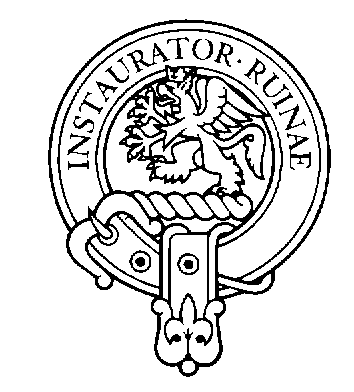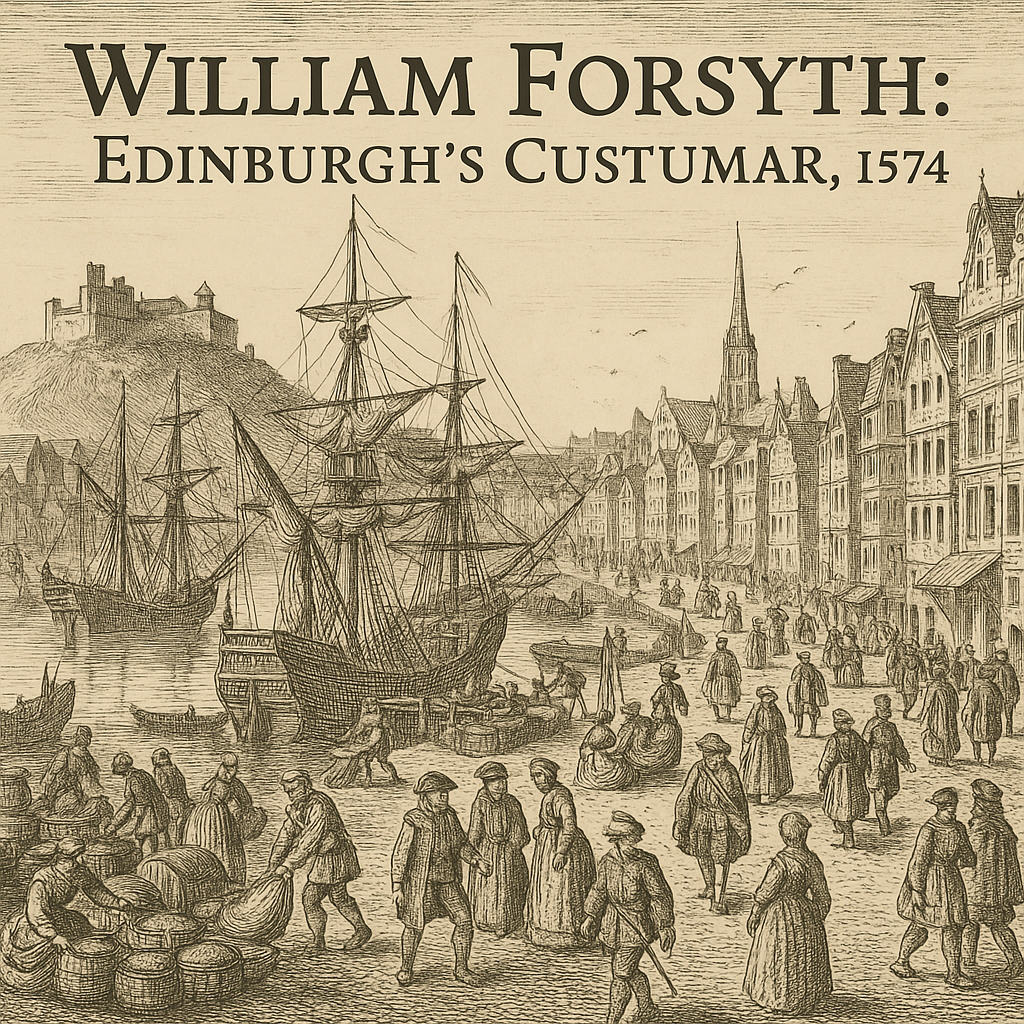William Forsyth: A 16th-Century Edinburgh Official
/Every so often, the historical record gives us a glimpse of a Forsyth whose role reached into the heart of Scottish civic life. One such man was William Forsyth, who served as a customs officer—or more precisely, a custumar—in Edinburgh during the 1570s.
In a volume of Scottish financial records, we find:
“Forsyth, William, renders account of the custumar of Edinburgh…”
Dated 1 November 1574, the entry refers to a 4-month period of accounting from 15 August to 15 December 1573, during which William Forsyth handled duties on behalf of Robert Watsoun, who had resigned the post.
📦 What Was a "Custumar"?
In 16th-century Scotland, a custumar was an official responsible for collecting customs duties—fees paid on goods entering or leaving ports or markets. This position involved oversight of trade, taxation, and public finance. It was not a minor role, especially in Edinburgh, Scotland’s capital and economic hub.
Forsyth’s duties involved major commodities such as:
Wool and cloth (including 3 lasts, 3 sacks of wool, and 9661 dozen woollen cloths)
Woolfells (sheepskins with wool attached—an important export product)
The total customs and duties accounted for during his brief term amounted to over £268, a substantial sum at the time.
💡 Why This Matters
This 1574 record places a Forsyth at the administrative center of Scottish commerce, responsible for managing and reporting large volumes of trade. It confirms that Forsyths were not only landholders and soldiers—but also played important roles in the early Scottish economy and governance.
Whether William Forsyth was appointed temporarily or was a trusted substitute during a transition, his presence in this record is a mark of status, literacy, and trustworthiness in a time when such positions were reserved for respected men.
Click Here to Join Clan Forsyth Society USA Today
📖 Source: Exchequer Rolls of Scotland, Vol. 20 (Entry for Edinburgh, p. 150–151)

